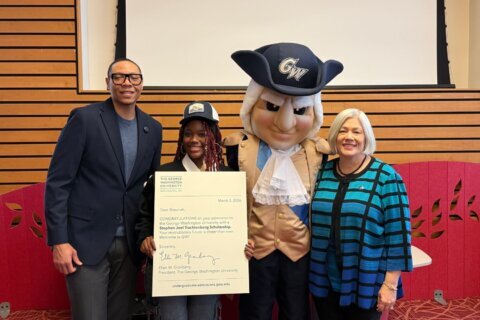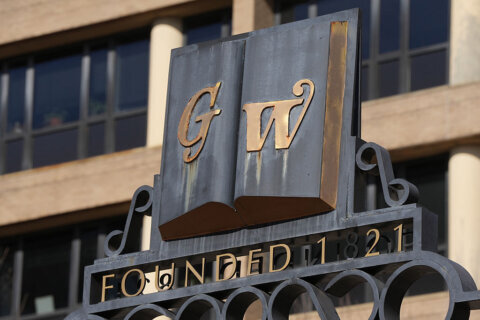Twenty-four D.C. Public School families refused to comply with the city’s requirement that pre-K through fifth grade students be up to date on routine shots by Tuesday, according to data shared with city officials during a public roundtable.
More than 500 families said they believe they uploaded the required documents, and 575 said they would have an appointment made for their students in the next two weeks.
A group of students is also seeking exemptions, according to Brenda Elliott, the school system’s chief of school improvement and supports.
School officials previously said there would be a two-week grace period for students who had paperwork pending or who had an appointment scheduled.
During the roundtable, city health officials and school leaders highlighted equity challenges of the city’s “no shots, no school” policy, which leaders in recent months announced plans to strictly enforce. Some critics said it would disproportionately affect students who are already behind because of the pandemic, and they urged D.C. leaders to consider an extension.
Data shared with the council didn’t include students who were absent Tuesday, and those who didn’t respond to schools’ messages.
Council member Christina Henderson, however, said the city’s vaccination requirements, which include vaccines for diseases such as measles and polio, are essential to keeping schools safe.
“I hope that people are understanding these efforts are not in vain,” Henderson said. “It literally is to protect the school community so that our kids can stay in school.”
The number of D.C. Public Charter school students who aren’t caught up is unclear because the charter sector doesn’t collect centralized vaccination data, said Michelle Walker-Davis, executive director of the city’s Public Charter School Board. However, Walker-Davis said, schools sent final warning notices to some 3,200 families.
Aaliyah Hodge, director of recovery strategy and special projects at KIPP DC, said the charter network has hosted vaccination clinics and launched targeted outreach campaigns to get students caught up, but urged the council to consider delaying enforcement.
“We strongly believe in the importance of mandatory vaccination for students attending schools,” Hodge said. “And we believe strongly that each of those students deserves an uninterrupted high- quality education. In a few weeks, schools across the district will be compelled to remove a large number of our students from their classrooms and deny them that education.”
Barry Brinkley, chief of staff at DC Prep, told council members that the public charter school adjusted its timeline for exclusion because school staff were locked out of and, in some cases, had to be trained on the software used to access student records.
Thomas Farley, with DC Health, said that there are limitations to the software and that the registry is incomplete because data isn’t provided for students who are vaccinated outside of the city.
“We have a bigger problem in the District than other states do because as a city-state, it’s far easier for children to go outside of the District, outside of the jurisdiction to be vaccinated than it might be in other places,” Farley said.
Henderson and council member Phil Mendelson also asked city health officials whether the council should reconsider its COVID-19 vaccination requirement for students 12 and older. D.C. is the only jurisdiction in the region that requires the coronavirus vaccine for students. The D.C. Council passed legislation requiring the shot in 2021.
About 46% of students 12 and older aren’t in compliance with the coronavirus vaccine requirement, according to city data. All eligible students must be vaccinated against COVID-19 by Jan. 3.
“There’s no question the vaccine against COVID saves lives,” Farley said. “And if we have a high level of compliance, we’re going to save lives. On the other hand, there is a contingent of parents, maybe 10% of African American parents in the city, who are strongly against vaccinating their children.”
Paul Kihn, the deputy mayor for education, said he didn’t have “strong perspective on either repeal or sustaining it. We all have to look very closely at it based on what we’re learning.”








